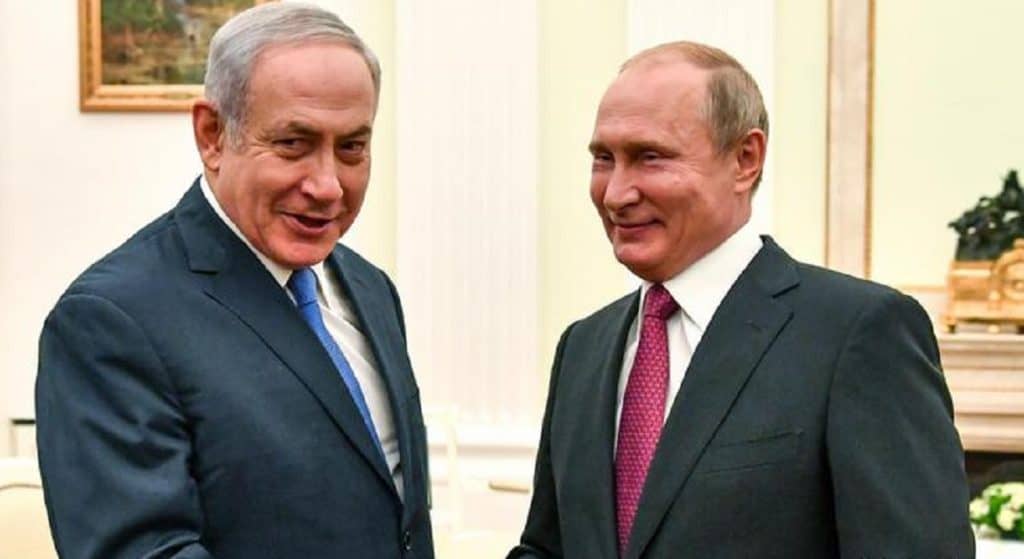By Denis Korkodinov
Israeli attacks on Hezbollah targets in Lebanon, as well as against Iranian targets in Syria and Iraq, create a unique platform for strengthening Russia’s position in the Middle East region.
Almost immediately after the exchange of attacks between Israel and Hezbollah, Beirut and Tel Aviv officially called on the Russian leadership to ease regional tensions. Subsequently, Israeli Prime Minister Benjamin Netanyahu publicly stated the need for direct negotiations with Russian President Vladimir Putin and a meeting of national security advisers from Russia, Israel and the United States.
This format of negotiations was determined by the desire to develop a unified plan of action to deter Iran in Syria and Lebanon, as well as to prevent accidental clashes with units of the Russian armed forces operating in the region. This gave Moscow reason to expand the field for political maneuvers in relations with Lebanon, Iran, Syria and Israel.
The Kremlin was seriously concerned about the very real prospect of a Lebanese-Israeli war. Meanwhile, Russian diplomatic sources proceeded from the opinion that if such a war occurs in the near future, it is unlikely to affect the change in regional architecture, but it will significantly undermine Moscow’s “Middle East success policy.” Therefore, as a priority response measure, Russia chose to immediately establish contacts with leading politicians in Lebanon and Israel in order to neutralize the likely confrontation.
It is worth noting that Tel Aviv and the Hezbollah leadership promptly assured Russia that they were not inclined to launch full-scale hostilities against each other. Moreover, their mutual attacks were exclusively symbolic and did not represent any strategic significance, on the basis of which they could not serve as casus belli neither now nor in the foreseeable future. In turn, the very fact that Israel and Hezbollah turned to Russia indicates that Moscow has taken a fairly strong position in the Middle East and is able to influence most regional players.
The trilateral meeting of the national security advisers of Russia, Israel and the United States, announced by Benjamin Netanyahu, represents a completely new format of the negotiation process. Previously, in the event of crisis situations involving Israeli military aircraft, Tel Aviv did not particularly need the opinion of Moscow. However, after the Lebanese events, Russia unequivocally informed Tel Aviv that it would not tolerate ignorance in cases where its strategic interests are threatened. In the end, Moscow could easily change the situation between Hezbollah and Israel, providing one of the parties with military assistance to escalate the conflict.
Fearing this, Benjamin Netanyahu and Hassan Nasrallah hastened to assure Vladimir Putin of the absence of militaristic intentions towards each other. In this regard, the final solution to the tension remained with Russia.
It is noteworthy that in June 2019 in Jerusalem, a meeting was held between the national security advisers of Russia, Israel and Iran. The key topic of discussion during the meeting was the military conflict in Syria and Iran’s participation in it. However, the parties could not agree among themselves. The main stubbornness in the negotiations was shown by Nikolai Patrushev, who delivered an ultimatum to Tel Aviv – the national security of Israel in exchange for the de-escalation of tension in Syria.
This condition was completely unacceptable for the Israeli side, which interrupted the negotiation process. Meanwhile, now, apparently, the situation has changed: Israel insists on continuing the dialogue with Moscow, and, apparently, agrees to make certain concessions.
Informed sources note that the main concession that Moscow expects from Tel Aviv is to stop provocations against Tehran. Syria and Iraq share this condition together with Russia, since the Iranian armed forces are present in one way or another in these countries, and if the conflict escalates, this will primarily affect the policies of Damascus and Baghdad. But the USA did not agree with this condition. At least, that was until the dismissal of the American national security adviser John Bolton. Now that John Bolton has lost his job, the situation could change dramatically: apparently, Donald Trump, under pressure from Moscow, will soften his anti-Iranian policy and he will be able to influence Israel.
(The views expressed in this article belong only to the author and do not necessarily reflect the views of World Geostrategic Insights)
Image Credit: Yuri Kadobnov / Reuters







